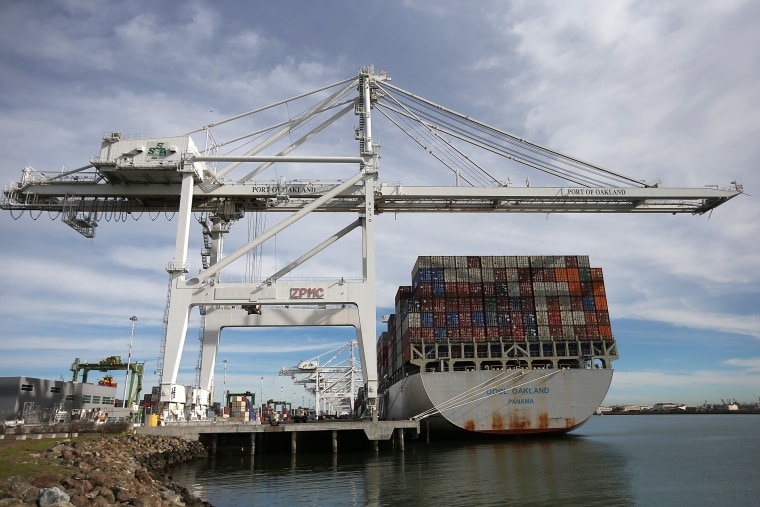West Coast farmers are reaping the fallout of a dispute they didn't sow.
The gridlock at West Coast ports — due to a dispute between the port owners and the longshoreman's union — is giving the region's agricultural industry serious heartburn.
Growers and shippers are losing money on exports they can't ship while their crops sit on the docks and rot. Flooding the domestic market would risk a price crash, and some worry they could lose business permanently if overseas buyers get fed up with spotty shipments of spoiled goods.
RELATED: Union membership keeps falling
"It's having a tremendous negative impact," said Al Bates, president of Sun Pacific Shippers and Farming. Right now is peak season for Sun Pacific's naval oranges, he said, exacerbating the losses.
"We'll export up to 60% of our fruit in these months," Bates said. Exports command roughly a 20% premium over what he can charge domestic buyers, which translates to $6 million a week or more.
This year, that $6 million has been slashed in half, and Bates is starting to hear that his belated shipments are reaching his Asian buyers in less-than perfect condition. "What we're finding is there's more soft fruit… You have more decay issues," he said. So far, demand from Asian markets has kept prices high because of the scarcity of shipments, but too much marginal or spoiled fruit is a problem.
"We talk to our buyers every day … and they're as frustrated as we are," said David Roth, president of Cecelia Packing Corporation. "Some of those containers have been sitting down there for two or three weeks," he said.
Typically, Roth said it wasn't unusual for 3% to 5% of fruit to suffer spoilage by the time it reaches Asia, but the port bottleneck has pushed that to double this year, and producers fear that could grow higher as peak season shipments trickle their way out of the backlogged ports.
RELATED: Fast food workers’ strike fueled by other low-wage employees, Eric Garner
"As of last week, the citrus industry had estimated losses in sales of as much $500 million for the season to date," said Dusty Ference, director of grower services for the trade association California Citrus Mutual. Fruit that would normally sit on a dock for a few days before loading was now languishing for a week and a half or more, he said.
While some growers are taking their chances, others are cutting their losses and trying to push their yield into the U.S. market, a move that brings in revenue in the short term but threatens prices in the long term, Ference said.
"When you figure 25% of our production is exported, that's a lot of fruit to put back in the domestic market," he said.
Read more at NBCNews.com.
